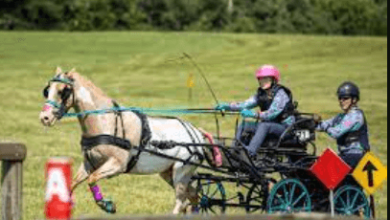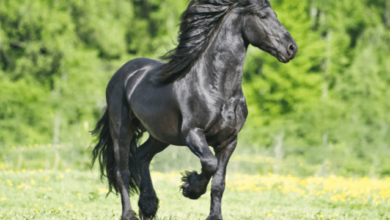What are the Ethical Considerations in Horse Racing?
Introduction
Horse racing is a sport that has been enjoyed for centuries, offering excitement, entertainment, and economic benefits. However, behind the glamour and thrill, there are significant ethical considerations that need to be addressed. The welfare of the horses, the methods used in training and racing, and the broader impact on the animals’ lives are crucial issues that raise ethical concerns. This article delves into these considerations, providing a comprehensive understanding of the ethical landscape in horse racing.
The History of Horse Racing
Horse racing has a rich history that dates back thousands of years. The origins can be traced to ancient civilizations where chariot races and mounted horse races were popular forms of entertainment. The sport evolved over time, gaining prominence in Europe and eventually spreading globally. Today, horse racing is a major industry, with significant cultural and economic impact.
Origins
Horse racing can be traced back to ancient Greece, Rome, Babylon, and Egypt. Chariot races were particularly popular in ancient Greece and Rome, while mounted horse races were prominent in Babylon and Egypt.
Evolution
The modern form of horse racing began to take shape in the 17th and 18th centuries in England. The introduction of thoroughbreds, specifically bred for speed and endurance, revolutionized the sport. By the 19th century, horse racing had spread to America, Australia, and other parts of the world.
Global Popularity
Today, horse racing is a global sport with significant events such as the Kentucky Derby in the United States, the Grand National in the United Kingdom, and the Melbourne Cup in Australia attracting millions of viewers and substantial betting activities.
Economic Impact of Horse Racing
Horse racing is not just a sport but a major economic driver. It generates significant revenues, creates jobs, and contributes to the economy in various ways.
Employment
The horse racing industry provides employment to thousands of people, including jockeys, trainers, breeders, veterinarians, and support staff.
Revenues
Horse racing generates substantial revenues from betting, ticket sales, sponsorships, and media rights. Major races attract large crowds and substantial betting activity, contributing significantly to the economy.
Industry Growth
The horse racing industry continues to grow, with new technologies and innovations enhancing the sport and attracting new audiences.
Animal Welfare in Horse Racing
The welfare of horses is a primary ethical concern in horse racing. Ensuring the health, safety, and well-being of the animals is crucial for maintaining ethical standards.
General Welfare
Horses used in racing must be treated with care and respect. This includes proper housing, nutrition, and medical care.
Regulatory Bodies
Various organizations, such as the British Horseracing Authority (BHA) and the United States Horse Racing Authority (USHRA), set standards and regulations to ensure the welfare of racehorses.
Welfare Standards
Strict welfare standards are essential to protect horses from abuse and neglect. These standards cover all aspects of a horse’s life, from breeding and training to racing and retirement.
Training Practices and Ethics
Training practices in horse racing can vary widely, and some methods have raised ethical concerns.
Training Methods
Training methods must be humane and designed to ensure the safety and well-being of the horse. This includes proper exercise, nutrition, and medical care.
Controversial Practices
Some training practices, such as the use of whips and harsh training techniques, have been criticized for being inhumane and causing unnecessary stress and injury to the horses.
Race Day Practices and Ethics
Race day practices play a crucial role in the welfare of the horses and the integrity of the sport.
Jockey’s Role
Jockeys have a significant responsibility to ensure the safety and well-being of the horses they ride. This includes riding techniques and the use of equipment.
Equipment Used
The equipment used in horse racing, such as whips and bits, must be carefully regulated to prevent abuse and ensure the safety of the horse.
Safety Measures
Safety measures, such as proper track maintenance and veterinary checks, are essential to prevent injuries and ensure the welfare of the horses.
Use of Performance Enhancing Drugs
The use of performance-enhancing drugs in horse racing is a major ethical concern.
Types of Drugs
Various drugs are used to enhance performance, mask injuries, or improve recovery times. These can include painkillers, stimulants, and steroids.
Detection Methods
Strict testing and detection methods are necessary to prevent the use of illegal substances and ensure fair competition.
Ethical Issues
The use of performance-enhancing drugs raises significant ethical issues, including the health risks to the horses and the integrity of the sport.
Injuries and Fatalities in Horse Racing
Injuries and fatalities are unfortunate aspects of horse racing, raising serious ethical concerns.
Common Injuries
Common injuries in horse racing include fractures, ligament injuries, and respiratory issues. These can have long-term impacts on the health and well-being of the horse.
Fatalities Statistics
Statistics on fatalities in horse racing highlight the risks involved. Efforts must be made to reduce these risks through better training, equipment, and safety measures.
Preventative Measures
Preventative measures, such as regular veterinary checks and improved track conditions, are essential to reduce the risk of injuries and fatalities.
Retirement and Aftercare of Racehorses
The retirement and aftercare of racehorses are critical ethical considerations.
Post-Racing Careers
Horses can have successful careers after racing, including as riding horses, therapy animals, or in breeding programs.
Rehabilitation
Rehabilitation programs are essential to ensure that retired racehorses receive the care and support they need to transition to new careers.
Ethical Retirement
Ensuring ethical retirement for racehorses includes providing proper housing, nutrition, and medical care throughout their lives.
Public Perception of Horse Racing
Public perception plays a significant role in the ethical considerations of horse racing.
Public Opinion
Public opinion on horse racing can be divided, with some viewing it as a prestigious sport and others as a form of animal exploitation.
Media Influence
Media coverage can influence public perception, highlighting both the positive aspects and the ethical concerns of horse racing.
Advocacy Groups
Advocacy groups play a crucial role in raising awareness and pushing for ethical reforms in the horse racing industry.
Legal Framework Governing Horse Racing
The legal framework governing horse racing is essential to ensure ethical standards are maintained.
Laws and Regulations
Various laws and regulations govern horse racing, covering aspects such as animal welfare, drug use, and race day practices.
Compliance
Compliance with these laws and regulations is crucial for maintaining ethical standards and ensuring the welfare of the horses.
Enforcement
Effective enforcement of laws and regulations is necessary to prevent ethical breaches and protect the integrity of the sport.
Role of Veterinary Care in Horse Racing
Veterinary care plays a vital role in maintaining the health and well-being of racehorses.
Veterinary Standards
Veterinary standards must be high to ensure that horses receive the best possible care, both on and off the track.
Ethical Veterinary Practices
Veterinarians must adhere to ethical practices, prioritizing the health and welfare of the horses over the demands of the sport.
International Standards and Practices
International standards and practices in horse racing can vary, raising ethical considerations.
Global Standards
Global standards aim to ensure consistent ethical practices across different countries and racing organizations.
Comparative Analysis
A comparative analysis of standards and practices can highlight areas for improvement and promote best practices worldwide.
Breeding Practices and Ethical Concerns
Breeding practices in horse racing raise significant ethical concerns.
Breeding for Performance
Breeding for performance can lead to genetic issues and health problems in racehorses, raising ethical concerns about the long-term welfare of the animals.
Genetic Issues
Genetic issues, such as inbreeding, can have serious health implications for racehorses, necessitating ethical breeding practices.
Breeding Ethics
Ethical breeding practices prioritize the health and well-being of the horses, ensuring that they are not subjected to unnecessary risks for the sake of performance.
Horse Racing and Animal Rights
The relationship between horse racing and animal rights is a contentious ethical issue.
Animal Rights Movements
Animal rights movements advocate for the protection and welfare of racehorses, highlighting ethical concerns and pushing for reforms.
Ethical Debates
Ethical debates surrounding horse racing focus on the balance between sport and animal welfare, questioning the morality of using animals for entertainment.
Environmental Impact of Horse Racing
The environmental impact of horse racing is an often-overlooked ethical consideration.
Environmental Considerations
Environmental considerations include the impact of racecourses, transportation, and waste management on the environment.
Sustainability Measures
Sustainability measures, such as eco-friendly racecourses and reduced carbon footprints, are essential for minimizing the environmental impact of horse racing.
Technological Advancements in Horse Racing
Technological advancements can have significant ethical implications in horse racing.
Innovations
Innovations in technology, such as improved training methods and veterinary care, can enhance the welfare of racehorses.
Ethical Implications
The ethical implications of technological advancements must be carefully considered to ensure they benefit the horses and the sport.
Betting and Gambling Ethics in Horse Racing
Betting and gambling are integral parts of horse racing, raising ethical considerations.
Gambling Impact
Gambling can have both positive and negative impacts, including economic benefits and issues related to problem gambling.
Ethical Gambling Practices
Ethical gambling practices prioritize responsible gambling, ensuring that betting activities do not negatively impact individuals or the integrity of the sport.
Case Studies of Ethical Breaches
Case studies of ethical breaches in horse racing provide valuable lessons and highlight areas for improvement.
Notable Cases
Notable cases of ethical breaches can include doping scandals, mistreatment of horses, and breaches of regulations.
Lessons Learned
Lessons learned from these cases can inform future practices and promote higher ethical standards in the industry.
Improving Ethical Standards in Horse Racing
Improving ethical standards in horse racing is essential for the welfare of the horses and the integrity of the sport.
Best Practices
Best practices include humane training methods, strict welfare standards, and effective enforcement of regulations.
Recommendations
Recommendations for improving ethical standards can include better education, stricter regulations, and increased transparency.
Future Directions
Future directions for horse racing ethics may involve greater emphasis on animal welfare, technological advancements, and sustainable practices.
The Future of Horse Racing Ethics
The future of horse racing ethics will involve addressing current challenges and anticipating future issues.
Trends
Trends in horse racing ethics may include increased focus on animal welfare, technological innovations, and greater public awareness.
Innovations
Innovations in training, veterinary care, and race day practices can enhance the welfare of racehorses and promote ethical standards.
Future Challenges
Future challenges may include balancing the demands of the sport with the welfare of the horses and addressing emerging ethical issues.
Role of Organizations in Promoting Ethics
Organizations play a crucial role in promoting ethics in horse racing.
Key Organizations
Key organizations, such as regulatory bodies and animal welfare groups, set standards and advocate for ethical practices.
Ethical Initiatives
Ethical initiatives, such as welfare programs and educational campaigns, are essential for promoting ethical standards in the industry.
Public Education and Awareness
Public education and awareness are vital for promoting ethical practices in horse racing.
Education Programs
Education programs can inform the public about ethical issues in horse racing and promote responsible practices.
Awareness Campaigns
Awareness campaigns can raise public awareness about the welfare of racehorses and the importance of ethical standards.
Ethical Considerations for Jockeys
Jockeys play a significant role in the welfare of racehorses, raising ethical considerations.
Jockey Welfare
Jockey welfare is important for ensuring that jockeys can perform their roles safely and ethically.
Ethical Jockey Practices
Ethical jockey practices include humane riding techniques and adherence to welfare standards.
Role of Sponsorships in Ethical Practices
Sponsorships can influence ethical practices in horse racing.
Influence of Sponsors
Sponsors can have a significant impact on the ethical standards of the industry, promoting responsible practices and supporting welfare initiatives.
Ethical Sponsorship Practices
Ethical sponsorship practices prioritize the welfare of the horses and the integrity of the sport, ensuring that sponsorship activities align with ethical standards.
Stakeholder Perspectives on Ethics
Stakeholder perspectives on ethics in horse racing provide valuable insights.
Perspectives of Owners
Owners have a responsibility to ensure the welfare of their horses and adhere to ethical standards.
Perspectives of Trainers
Trainers play a crucial role in the welfare of racehorses, raising ethical considerations about training methods and practices.
Perspectives of Jockeys
Jockeys have a significant influence on the welfare of racehorses, emphasizing the importance of ethical riding practices.
Perspectives of Fans
Fans can influence ethical practices in horse racing by advocating for the welfare of the horses and supporting responsible practices.
Comparative Analysis of Horse Racing Ethics
A comparative analysis of horse racing ethics with other sports can highlight unique ethical issues.
Comparison with Other Sports
Comparing horse racing with other sports can provide insights into ethical practices and highlight areas for improvement.
Unique Ethical Issues
Unique ethical issues in horse racing may include the use of animals, breeding practices, and the impact of racing on horse welfare.
Philosophical Perspectives on Horse Racing
Philosophical perspectives on horse racing provide a deeper understanding of the ethical considerations.
Ethical Theories
Ethical theories, such as utilitarianism and deontology, can provide frameworks for analyzing ethical issues in horse racing.
Moral Philosophy
Moral philosophy explores the ethical implications of using animals for sport and entertainment, raising questions about the morality of horse racing.
Ethical Analysis
Ethical analysis of horse racing involves examining the impacts on horse welfare, the integrity of the sport, and the broader societal implications.
Cultural Perspectives on Horse Racing
Cultural perspectives on horse racing highlight the significance of the sport in different societies.
Cultural Significance
The cultural significance of horse racing varies across different societies, influencing ethical considerations and practices.
Ethical Considerations in Different Cultures
Ethical considerations in horse racing can differ based on cultural values and norms, emphasizing the importance of understanding diverse perspectives.
Educational Institutions and Ethical Research
Educational institutions play a crucial role in ethical research and education in horse racing.
Research Contributions
Research contributions from educational institutions can provide valuable insights into ethical issues and promote best practices.
Academic Perspectives
Academic perspectives on horse racing ethics can inform policy, regulation, and industry practices, promoting higher ethical standards.
FAQs
What are the main ethical issues in horse racing? The main ethical issues in horse racing include animal welfare, the use of performance-enhancing drugs, training practices, and the treatment of horses after retirement.
How do regulatory bodies ensure the welfare of racehorses? Regulatory bodies set standards and regulations for the welfare of racehorses, including proper housing, nutrition, medical care, and humane training practices.
What role do veterinarians play in horse racing ethics? Veterinarians play a crucial role in ensuring the health and well-being of racehorses, adhering to high veterinary standards and ethical practices.
Are there ethical concerns with breeding practices in horse racing? Yes, breeding practices in horse racing can raise ethical concerns, particularly related to breeding for performance, genetic issues, and the long-term welfare of the horses.
How can the public influence ethical practices in horse racing? The public can influence ethical practices in horse racing by advocating for animal welfare, supporting ethical initiatives, and raising awareness about ethical issues.
What measures can be taken to improve ethical standards in horse racing? Measures to improve ethical standards in horse racing include better education, stricter regulations, increased transparency, and the promotion of humane training and racing practices.
Conclusion
Horse racing is a sport with a rich history and significant cultural and economic impact. However, it also raises important ethical considerations, particularly regarding the welfare of the horses involved. By understanding these ethical issues and promoting responsible practices, the horse racing industry can work towards a more ethical and sustainable future.





